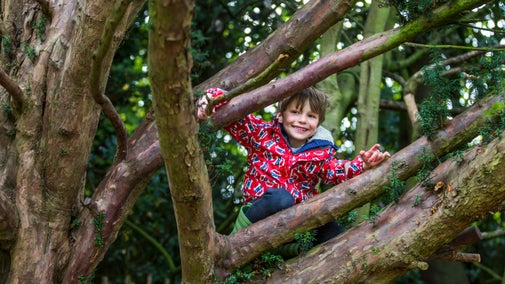
Volunteer with us
Search for live volunteering opportunities, or register your interest with Mr Straw's House.
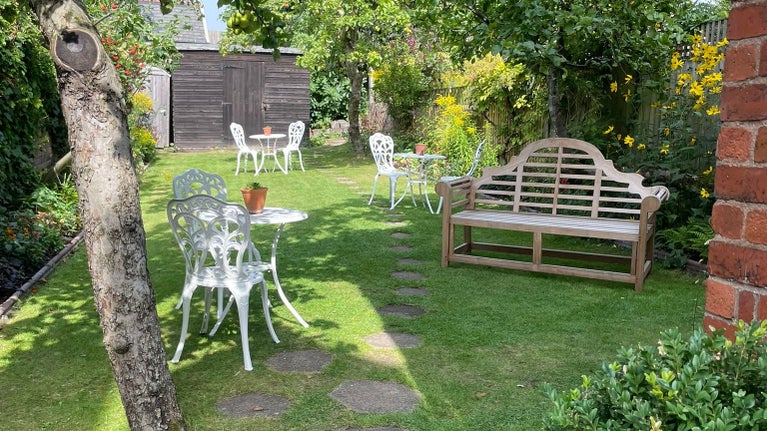
William and Walter Straw were both keen walkers and enjoyed being fit and active. They were kept busy tending the garden at Blyth Grove and mapping out footpaths in the area. Walk in their footsteps and explore the great outdoors.
Having lived above the shop with only a small back yard, the Straws would have relished moving to Endcliffe Villa at 7 Blyth Grove and finding themselves with two gardens and an orchard.
Today they offer visitors the opportunity to relax in a quiet green oasis away from the hustle and bustle of Worksop.
The front garden offered the family separation from the street and privacy within the front room. Here you can see an elderly mulberry tree, a relatively rare survival.
The lovingly tended back garden includes a greenhouse housing Walter Straw’s cacti collection. The greenhouse is a modern replica, but some of the plants inside are the descendants of Walter’s originals. William Jr grew auriculas which he housed in an ‘auricula theatre’ – a range of stepped shelves which showed off the flowers to their best advantage.

The orchard allowed them a space for growing fruit and vegetables away from the Gentleman's Gardens – a plot of land purchased by William Sr to give him and his fellow trade owners an outdoor space of their own to enjoy and grow produce as a traditional allotment.
The orchard contains various fruit trees including apples, pears and plums, once used by the family to make preserves and other recipes. A copy of the original planting plan of the orchard exists dated 1926, with later additions.
Varieties of apple trees include Bramley and Cox’s Orange Pippin, still familiar to us today, but more unusual varieties such as ‘Rev.W.Wilks’, ‘Warner’s King’ and ‘Lord Suffield’ are also represented. The Bramley was a local apple, having been discovered in a cottage garden in Southwell, Nottinghamshire.
Pear varieties include ‘Beurre D’Amanlis’, ‘Pitmaston Duchess’ and ‘Lord Grosvenor’. Plum varieties include ‘Victoria’, ‘Belgian Purple’ and ‘Pond’s Seedling’.
In the 19th and early 20th centuries there was an upsurge of interest in different varieties of apple and many cultivars were developed during this period. For example, Rev. W. Wilks, vicar of Shirley in Surrey and secretary of the Royal Horticultural Society from 1888 to 1919 developed his apple in 1904, so it would have been a relatively new variety when the Straws planted theirs in 1926.
William and Walter enjoyed walking in the great outdoors and were even involved in helping map out the footpaths in their area when the Public Rights of Way Act was first introduced.
The brothers also enjoyed a walk around Worksop itself. Every Sunday they would take a turn through the town to check on the places they owned, the business and to get a bit of fresh air.
You can take the 2.5-mile walk through the town to see the places they would have known, including the college Walter taught classes at, the church they worshipped at, and their old grocery shop premises.
A map of the walk is available to pick up during your visit. Alternatively, join the monthly Worksop Walk, led by our knowledgeable volunteers, which takes place on the last Friday of every month from March to October. Booking is essential here.

If you’re trying to achieve all of the '50 things to do before you’re 11¾' then look no further than the orchard. The Straws took advantage of all their green space and planned in meticulous detail the things they would grow, including the varieties of apple, pear and plum.
You could tick off No.1: Get to know a tree, and go hunting in the nooks and crannies of the bark for No.31: Make friends with a bug. Use fallen leaves in autumn and sticks on the ground to complete No.18: Create some wild art. Don't forget to look up and tick off No.33: Go cloud watching.

Search for live volunteering opportunities, or register your interest with Mr Straw's House.
Find out more about this unassuming red-brick semi which, once inside, reveals a house frozen in time filled with a treasure chest of objects and memories from inter-war Britain.

Meet the Straws; not hoarders, nor recluses - not even very odd - just people of their time, long after their time had passed.

Discover more about some of the collection highlights from Mr Straw’s House, a house frozen in time and containing a mix of treasured possessions and ordinary domestic items.
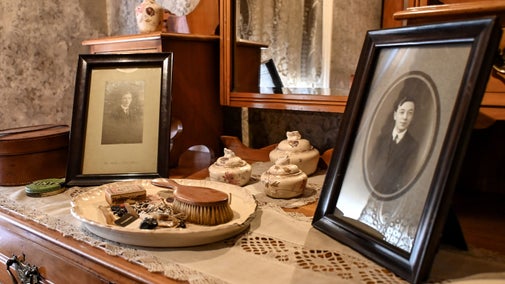
From daily cleans to deep cleans and knitted slippers to coal bags, find out how the team care for the 30,000 objects squeezed into this ordinary house, but extraordinary home.
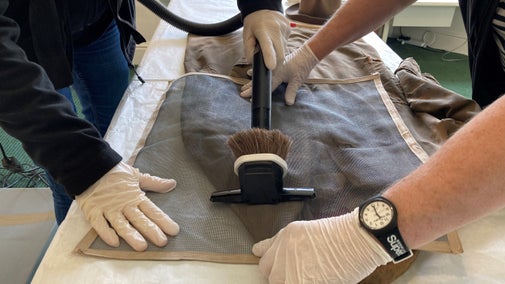
Discover our gardeners’ top tips so you can make the most of your garden, plot or window box.
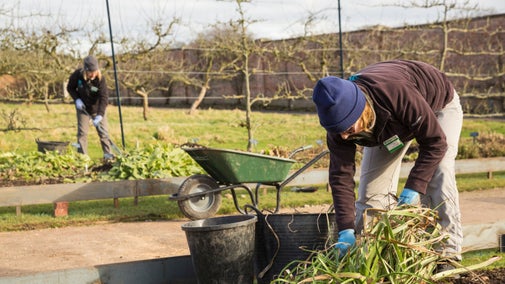
Plan fresh-air activities, discover facts about nature and wildlife or learn a new skill with our suggestions for ‘50 things to do before you’re 11¾’.
